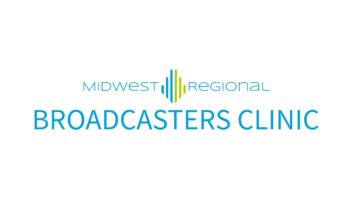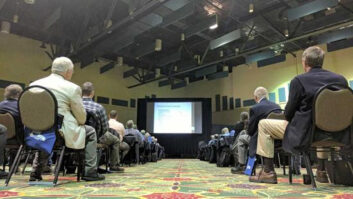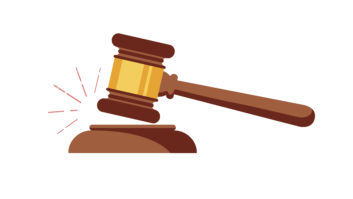Just before the deadline hit, a cluster of comments from broadcasters large and small — and literally hundreds of solo individuals — have poured into the Federal Communications Commission comment database regarding local radio ownership.
Small and large broadcasters alike have pressed the FCC to keep the status quo. Large organizations like the National Association of Broadcasters have called on the FCC to make significant changes. Others say a middle ground should be reached.
The one thing they have in common: All are considering how best to support the broadcast industry as it grapples with the new competitive marketplace that radio broadcasters now find themselves part of.
Smaller broadcasters like 25-7 Media, which owns two radio stations in rural Colorado, make compelling arguments for why the commission should relax ownership rules, particularly in in small, unrated markets.
[Read: NAB to FCC: Revise Ownership Rules to Support Radio]
A change in ownership rules — to allow for no restrictions in small, unrated markets — would give companies like 25-7 Media the opportunity to merge with other small broadcast owners, a move that would create significant efficiencies and allow small stations to become profitable, said Aaron J. Leiker, president and general manager of KLMR(AM) and KBLJ(AM).
“This is the most viable way to see radio thrive in Lamar and rural communities like ours across the country,” he said.
“I am one that typically favors regulation, but in this instance, I ask for deregulation,” Leiker said. “Otherwise, my company or my friends across town may eventually be forced into bankruptcy, sale or closure. Please help struggling small media companies like ours thrive. Vote to remove ownership restrictions on small, unrated markets.”
Yet other small broadcasters are asking that the commission maintain the current radio ownership regulations.
Two Massachusetts-based broadcasters said the suggested elimination of the ownership cap “would be detrimental to small station owners, as it would lead to larger station owners being able to increase their hold on the radio broadcast market and create an unfavorable and untenable form of competition,” said Bristol County Broadcasting and SNE Broadcasting, which are independent, family-owned broadcasters that each license one AM station and FM translator in Fall River, Mass.
“Elimination of the cap would lead to large corporations buying up, in bulk, radio broadcast stations in small communities and regional AM stations,” the broadcasters said in a joint comment filing with the FCC. “As a result, local communities would ultimately suffer the loss of community-inspired broadcasts in exchange for syndicated content that is national rather than localcentric.”
Broadcasters like King City Communications agree. As a licensee of AM, FM and FM translator stations in California, King City requests the commission retain the current local radio ownership rules and the cap on station ownership “to avoid large companies coming into radio markets and buying up all of the independently-owned radio stations.”
“King City fondly recalls the days when broadcast radio stations were owned by the people who lived in the communities served by the station, when owning a radio station was not only about profit, but also about making sure the station served the community in the best way possible,” the broadcaster said in comments filed with the FCC. “Eliminating the ownership cap will hasten the demise of the independent, family-owned broadcast radio station and destroy the localism that is at the center of such stations.”
Others wholeheartedly agree that changes should be made, specifically siding with the proposal proffered by NAB, which has three main components. One, that the FCC change its ownership rules so that a single entity can own or control up to eight commercial FM stations in Nielsen Audio markets 1–75 (with no cap on AM ownership); two, offer the ability for a licensee to own up to two more commercial FM stations (for a total of 10 FMs) if that licensee participates in the FCC’s incubator program, which is designed to help increase ownership diversity in broadcast radio; three, eliminate restrictions on the number of commercial FM or AM stations a single entity can own in both unrated markets and those outside of the top 75.
Galaxy Communications, which owns 13 radio stations in two New York markets, said the NAB proposal convincingly demonstrates that the competitive landscape faced by radio broadcasters is drastically different than it was when the local radio ownership rules were adopted. Thus it’s time to take action.
“Relaxation of the local radio ownership limits will enable broadcasters like Galaxy to take advantage of critical economies of scale that operation of multiple stations permits,” said the licensee.
Comments submitted in regard to the Quadrennial Review process can be found at the FCC’s ECFS database using Media Bureau Docket Number 18-349.
[Subscribe to our newsletter and get it delivered right to your inbox.]







